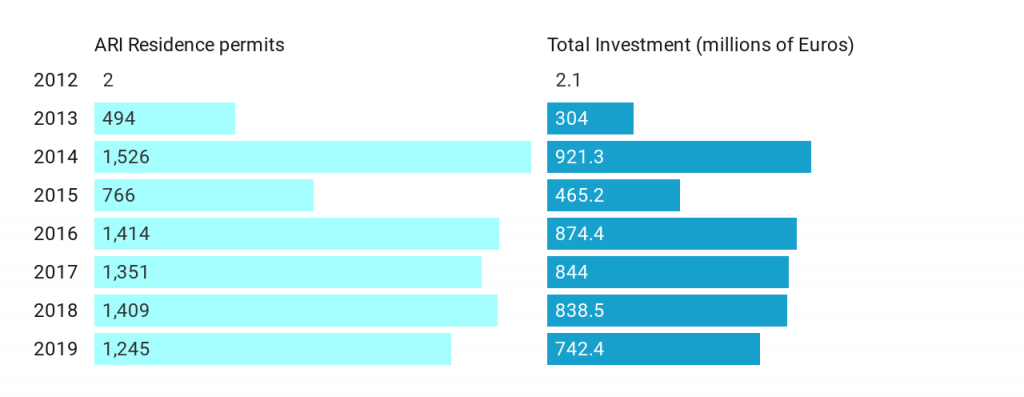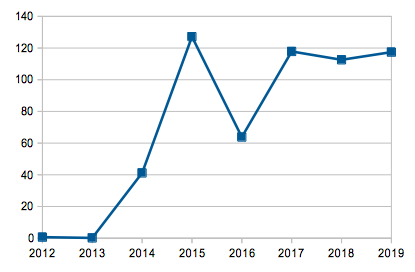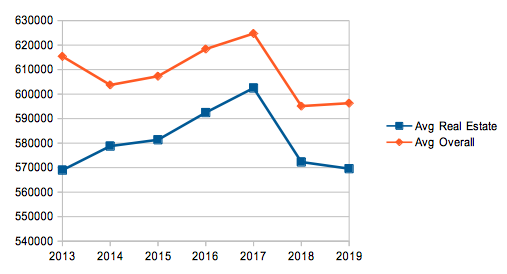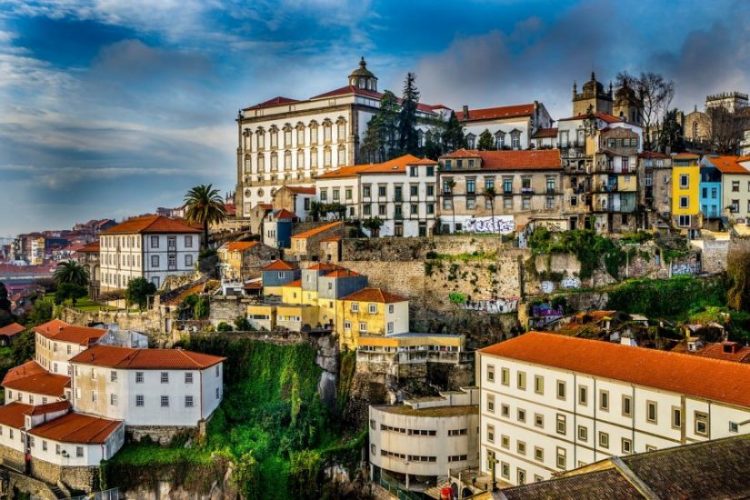The Portugal’s most successful golden visa scheme has reached the historic €5 billion figure in Jan 2020, according to the latest statistics released by SEF. Of these €5 billion euros, €4.5 billion has been invested in real estate sector and the rest in capital transfer investments.
The Portugal Golden visa (PGV) scheme known as ARI regime was opened on Oct 2012 and this enormous sum of money collected in just 7 years, 1 month (85 months) of running the ARI scheme
As of Jan 2020, these are the latest stats of residence permits issued under ARI regime
- Real Estate – 7810
- Capital transfer – 461
- Jobs created – 17

| Real Estate | ARI | Investment (millions) |
| 2013 | 474 | 269.7 |
| 2014 | 1452 | 840.4 |
| 2015 | 719 | 418 |
| 2016 | 1329 | 787.4 |
| 2017 | 1279 | 770.6 |
| 2018 | 1332 | 762.3 |
| 2019 | 1160 | 660.7 |
In January 2020, only 81 golden visas were approved to mostly chinese and russians.
- China – 17
- Russia – 6
- Vietnam – 6
- India – 5
- Brazil – 5
- Turkey – 5
As you can see, the interest from indians applying for golden visas in Portugal has surged.
The Golden visas issued by Portugal every month averages around 117 ARIs at its peak and reached its lowest lowest for the year 2016.

Similarly the average golden visa investment per investor, floats around 600,000 euros under the ARI regime. This average is slightly lower for real estate than the overall average.
Each real estate purchase averages around €570,000 euros to €600,000. This goes on to show foreign property buyers are buying high end real estate above €500,000 euros mostly in major cities and capitals.

Recently, the Portugal Government proposed a radical change to shift golden visas into rural areas outside Lisbon to, Porto and possibly Algarve, to put a lid on rising property prices in Lisbon/Porto. After the backlash from developers, the decision postponed to 2021.
Portugal real estate market may face a slowdown in the future due to the recent outbreak of corona virus, especially from chinese market because of the lockdown. So far no confirmed cases emerged from Portugal.





